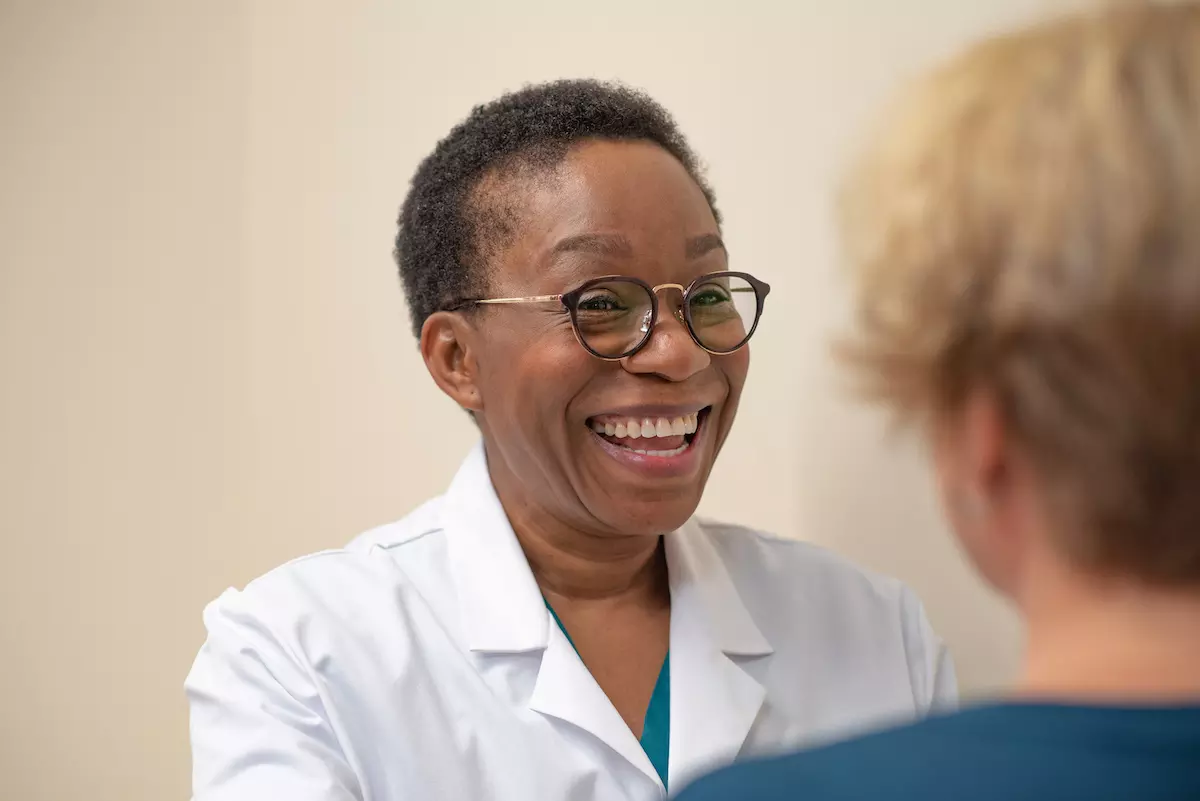- AdventHealth

Health screenings — often done in annual checkups and exams — can give you essential insights about your health and find issues early when they’re easiest to treat, including cancer. And as many of the top health conditions in women are preventable, screenings are an important way to stay on top of your health at every age and stage of life.
Take a healthy step and schedule the following applicable women’s screenings for greater peace of mind.
Schedule These 6 Women’s Health Screenings
Your primary care provider can recommend the proper exams for you based on your age and health history, and these are some of the most important screenings for women overall.
1. Cholesterol Test (Starting at Age 45)
Most women should undergo regular cholesterol screening starting at age 45. However, you should start cholesterol screening at age 20 if you:
- Are a smoker
- Are obese
- Have diabetes, high blood pressure (hypertension) or heart disease
- Are taking birth control pills with estrogen and progesterone
You should expect to undergo a cholesterol screening every five years. A cholesterol test can reveal insights about your heart health. Identifying and treating a problem with your cholesterol levels can help reduce your risk of heart disease.
2. Colonoscopy (Starting at Age 45)
Colorectal cancer is the third most common cancer affecting women. But it’s more than 90% curable if diagnosed early. For women with an average risk of colon cancer, colonoscopies should start at age 45 — now earlier than the previously recommended age 50 — and women should get them every 10 years.
A colonoscopy involves the use of a narrow, flexible tube with a camera that’s used to inspect the colon for cancer. This screening is particularly effective because it allows doctors to find and remove polyps, the small growths that can evolve into cancer.
3. Screening Mammogram (Starting at Age 40)
While it’s important to do breast self-exams at every age after puberty, after you turn 40, you should start getting a screening mammogram every year. Mammograms are perhaps the most well-known cancer screening tests. They’re fast, easy, inexpensive and painless — and mammograms save lives every year.
Screening mammograms look for signs of breast cancer, like tumors, and are the most powerful and effective tools available to detect breast cancer at the earliest possible stage before it can spread to other parts of the body.
4. Pap Test (or Pap Smear)

During your annual well-woman exam, your provider may perform a pelvic examination and a Pap test (also called a Pap smear).
“Cervical cancer is preventable with regular screening, and most importantly, the long-lasting effects of undergoing cancer treatment can be avoided with routine screening,” said Joy Nwadike, MD, obstetrician and gynecologist at AdventHealth Medical Group OB/GYN at Chatsworth.
In a Pap test, a brush or spatula is used to remove cells from the cervix. Follow-up testing reveals whether abnormal cells (that could lead to cervical cancer) are present. A Pap test shouldn’t be painful, but it may be uncomfortable.
Women ages 21 to 65 should have a Pap test done once every three years. If you’ve had a hysterectomy, it's still recommended that you have a pelvic exam every three to five years, even if you’ve never had an abnormal result.
Dr. Nwadike stressed the importance of regular Pap tests. “It is very important for this age group to be up to date because this is the population age group that pre-invasive cervical disease is commonly diagnosed and effectively treated,” said Dr. Nwadike.
5. Skin Cancer Screening
Many factors play into the screening schedule for preventive skin exams, so speak with your primary care provider or dermatologist to determine the schedule that’s right for you.
Undergoing regular skin exams enables your health care provider to track any worrisome moles, lumps or bumps you may have, along with identifying and treating early signs of skin cancer.
6. Vision Exam
“Even if you have 20/20 vision, you may have eye problems such as glaucoma or macular degeneration. Therefore, it is crucial to have an annual eye exam to ensure good eye health,” said Daniel Ahn, MD, ophthalmologist at AdventHealth Medical Group Ophthalmology at Calhoun.
If you have an ophthalmologist, they should be familiar with your eye health and any changes in your vision. Ask them how often you should come in for a vision exam. If you don’t have an eye doctor, you can also ask your primary care physician at your annual physical about vision tests and when you should get them.
Choose the health content that’s right for you, and get it delivered right in your inbox.
Recent News
-
Our Team and Culture
This Native American Heritage Month, we celebrate Jacqueline Hall, office coordinator at AdventHealth Medical Group General Surgery at Chatsworth and AdventHealth Medical Group Urology at Chatsworth...
-
Our Communities
We had the pleasure of hosting a legislative dinner with our local delegation from Georgia to discuss the priorities that will shape 2025 and beyond for AdventHealth Georgia. It was a wonderful...
-
Our Communities
In gratitude to the men and women who have served in the United States Armed Forces, AdventHealth has partnered with Chatsworth’s Bojangles restaurant to host a special Veterans Day breakfast event...
